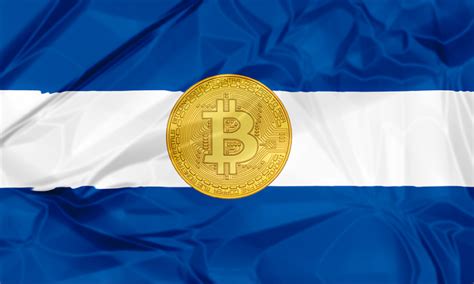El Salvador Bitcoin: A Bold Experiment or a Risky Gamble?

`markdown
Preview: El Salvador made history by adopting Bitcoin as legal tender. But how has this decision played out? This article dives deep into the El Salvador Bitcoin experiment, exploring its successes, challenges, and implications for the future of cryptocurrency adoption.
The El Salvador Bitcoin Story: A Nation Embraces Crypto
In 2021, El Salvador made headlines worldwide by becoming the first country to adopt Bitcoin as legal tender. President Nayib Bukele championed the move, arguing it would boost financial inclusion, reduce remittance costs, and attract foreign investment. This bold decision positioned El Salvador at the forefront of the global cryptocurrency movement.
Understanding El Salvador's Bitcoin Adoption
The Motivation Behind the Move
- Financial Inclusion: A significant portion of El Salvador's population lacked access to traditional banking services. Bitcoin offered a potential solution to include the unbanked.
- Remittance Costs: Remittances from Salvadorans living abroad contribute significantly to the country's GDP. Bitcoin aimed to reduce the high fees associated with traditional remittance services.
- Attracting Investment: Bukele believed that embracing Bitcoin would attract foreign investment and stimulate economic growth.
- Debt Concerns: The IMF has expressed concerns about the potential risks to El Salvador's financial stability due to the volatility of Bitcoin.
- Tourism Boost: There has been anecdotal evidence of a potential boost in tourism, particularly among cryptocurrency enthusiasts.
- Bitcoin Bonds (Volcano Bonds): El Salvador planned to issue \$1 billion in Bitcoin-backed bonds (often called Volcano Bonds) to fund the construction of Bitcoin City, a planned crypto-centric metropolis. However, these have faced delays.
- Infrastructure Limitations: Internet access and reliable infrastructure remain challenges in some parts of El Salvador, hindering widespread Bitcoin adoption.
- Scalability Concerns: The Bitcoin network's transaction processing capacity remains a concern for handling large volumes of transactions.
- Education and Adoption: Educating the population about Bitcoin and encouraging its adoption have proven to be ongoing challenges.
- Skepticism and Resistance: Public opinion on Bitcoin adoption remains divided. Some citizens are wary of the cryptocurrency's volatility and complexity.
- Privacy Concerns: Concerns have been raised about the privacy implications of using the Chivo Wallet.
- The Case for Success: Lower remittance fees (for some), increased awareness of cryptocurrency, potential for tourism boost.
- The Case for Failure: Volatility risk, IMF concerns, public skepticism, infrastructural challenges, unrealized goals for financial inclusion (to the extent predicted).
- El Salvador Bitcoin adoption was a pioneering move aimed at financial inclusion and economic growth.
- The experiment has faced both successes and challenges, including economic concerns and technological limitations.
- The future of cryptocurrency in El Salvador remains uncertain, but the world is watching closely.
- [Link to a hypothetical article about the challenges of cryptocurrency adoption in developing countries]
- [Link to a hypothetical article discussing the risks of Bitcoin volatility]
The Chivo Wallet
The government launched the "Chivo Wallet," a state-sponsored digital wallet, to facilitate Bitcoin transactions. Each citizen was offered \$30 in Bitcoin to encourage adoption.
The Impact of El Salvador's Bitcoin Adoption
Economic Impacts
Technological Challenges
Public Opinion
El Salvador Bitcoin: Success or Failure?
Determining the overall success or failure of El Salvador's Bitcoin experiment is complex and requires careful consideration of various factors.
The long-term impact of this experiment remains to be seen, and the world is watching closely to learn from El Salvador's experience.
The Future of Cryptocurrency in El Salvador
Despite the challenges, El Salvador's Bitcoin experiment has sparked a global conversation about the potential of cryptocurrency. The government remains committed to its Bitcoin strategy. Whether it ultimately succeeds or fails, El Salvador's bold move will undoubtedly shape the future of cryptocurrency adoption worldwide.
Key Takeaways
Internal Links
Frequently Asked Questions (FAQ)
Q: Why did El Salvador adopt Bitcoin?
A: El Salvador adopted Bitcoin to promote financial inclusion, reduce remittance costs, and attract foreign investment. The government aimed to provide its citizens with greater access to financial services and a more efficient way to receive money from abroad.
Q: What is the Chivo Wallet?
A: The Chivo Wallet is a state-sponsored digital wallet launched by the El Salvador government to facilitate Bitcoin transactions. It was offered to citizens with \$30 in Bitcoin as an incentive to use it.
Q: What are the concerns about El Salvador's Bitcoin adoption?
A: Concerns include Bitcoin's price volatility, potential risks to financial stability (as highlighted by the IMF), infrastructure limitations, and public skepticism.
Q: What is the current status of Bitcoin adoption in El Salvador?
A: While the government remains committed to Bitcoin, adoption rates have been mixed. Challenges persist in terms of educating the public and ensuring widespread accessibility.
`





